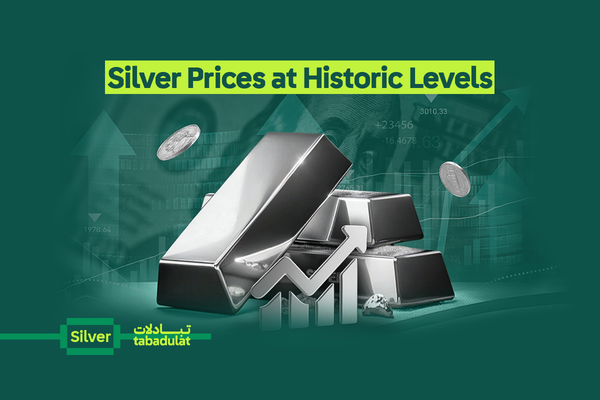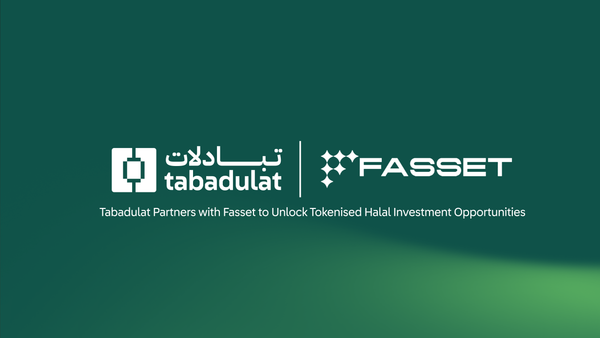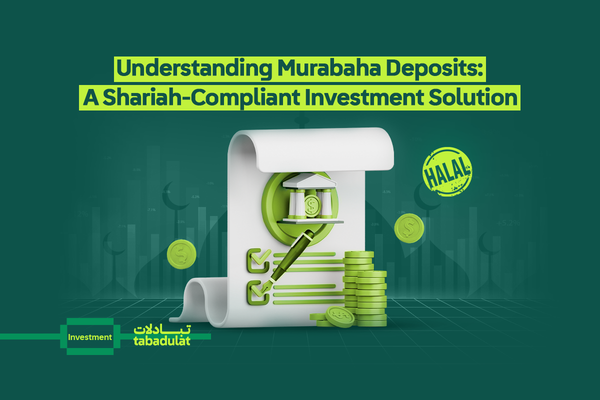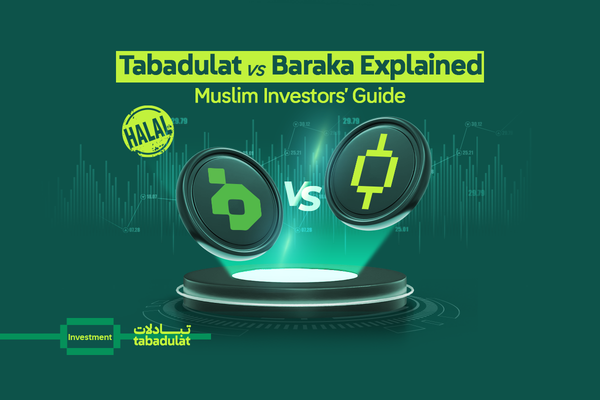MENA’s Power Players: The Top 10 Stocks of 2025
From Aramco to STC, we break down MENA’s top 10 listed companies by size and sector. But are they halal? This guide screens each for Shariah compliance and reveals how Muslim investors can use Tabadulat to build faith-based portfolios.
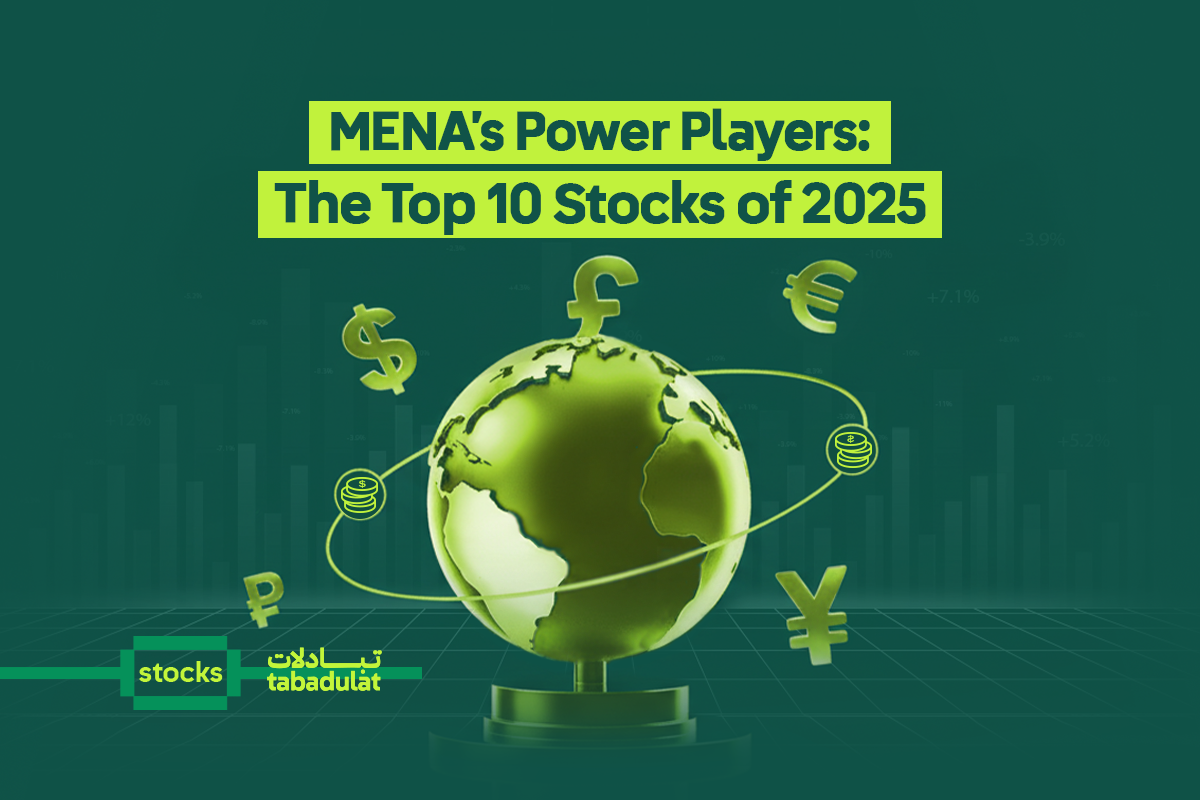
Could your next Halal investment be closer than you think?
In 2025, the MENA region isn’t just keeping pace with global markets; it's dominating them. From Saudi Aramco to emerging AI-powered banks, the top 10 listed companies in the Middle East and North Africa boast a combined market capitalization of over $2.34 trillion, according to Forbes Middle East.
The ranking is based on data collected from the main markets in the Arab stock exchanges, using four equally weighted metrics: sales, assets, and profits for the 2024 fiscal year, as well as market value as of April 25, 2025. The list reflects companies' performance using publicly disclosed financials and market metrics across multiple sectors.
For Muslim investors, one question is even more important than market cap and sales: Are these investments Halal? At Tabadulat, the world’s first completely free halal stock screener, we track compliance in real time using AAOIFI standards, so you can explore new opportunities without compromising your values.
This article examines the corporate giants of the MENA region and their implications for Halal investing, Shariah-compliant real estate investment, and sukuk-linked diversification.
1. Saudi Aramco (Saudi Arabia)
- Market Cap: $1.7 trillion
- Revenue: $480.4 billion
- Profit: $106.2 billion
- Assets: $646.3 billion
Saudi Aramco remains a global leader in the energy sector, driving regional economies and meeting global demand. In 2025, it signed $90 billion in MoUs with U.S. firms and is on track to expand gas output by 60% by 2030. Its operations and financial dealings are conducted in line with Shariah principles, ensuring full compliance across its activities.
Did you know? Saudi Arabia is also a leader in sukuk issuance, offering Shariah-compliant bonds for investors focused on halal finance and fixed-income products. Learn more about sukuk
2. International Holding Company “IHC” (United Arab Emirates)
- Market Cap: $239.9 billion
- Revenue: $25.2 billion
- Profit: $7 billion
- Assets: $109.4 billion
With stakes in 1,300+ entities, IHC is the UAE’s most diversified holding company, spanning real estate, AI, reinsurance, and even stablecoin development. In May 2025, IHC launched RIQ, an AI-driven Islamic reinsurance platform, in partnership with BlackRock and Lunate.
Despite some subsidiaries potentially meeting halal stock criteria, IHC’s broad exposure to non-compliant sectors and complex group structure make it fail overall Shariah compliance screening. Tabadulat flags such cases, helping you identify both compliant and non-compliant parent companies and subsidiaries.
Did you know? The UAE is home to several halal ETFs listed on Nasdaq Dubai, offering Shariah-compliant exposure to global sectors like healthcare, tech, and sukuk. Read more about halal ETFs
3. QNB Group (Qatar)
- Market Cap: $41.1 billion
- Revenue: $37.5 billion
- Profit: $4.7 billion
- Assets: $356.6 billion
QNB is the largest financial institution in the region, operating in 28 countries. Its business model is primarily conventional, with significant involvement in interest-based lending and other non-Shariah-compliant activities. This makes it unsuitable for investors seeking fully halal banking exposure without extensive purification.
Although QNB operates primarily as a conventional bank, it does offer a range of Shariah-compliant products through its Islamic banking window. Under the supervision of a dedicated Shariah board, QNB provides Islamic current accounts, Murabaha and Ijara-based financing, and Wakalah deposits for both individuals and corporates.
4. Saudi National Bank “SNB” (Saudi Arabia)
- Market Cap: $57.3 billion
- Revenue: $18.7 billion
- Profit: $5.6 billion
- Assets: $294.4 billion
Saudi National Bank (SNB) is a conventional bank that offers some Shariah-compliant products through an Islamic banking window, such as Murabaha financing, Ijarah, Wakala deposits, and Islamic current or investment accounts supervised by its Shariah committee. However, its international operations, including conventional bond issuances in Taiwan and a $5 billion note program, reflect its core reliance on interest-based activities. As a result, SNB is considered non-compliant from a Shariah investment perspective and does not meet halal investing criteria, despite providing Islamic services to customers.
5. Alrajhi Bank (Saudi Arabia)
- Market Cap: $104.7 billion
- Revenue: $16.1 billion
- Profit: $5.3 billion
- Assets: $259.8 billion
Alrajhi Bank is one of the region’s strongest Islamic finance institutions. It issued a $1.5 billion sustainable sakk, expanded into Jordan, Malaysia, and acquired fintech company Drahim. For Muslims seeking exposure to halal banking, sukuk, and digital Islamic finance, Alrajhi is one of the most compliant players in the region.
6. Emirates NBD Group (UAE)
- Market Cap: $34.7 billion
- Revenue: $26.3 billion
- Profit: $6.3 billion
- Assets: $271.4 billion
Emirates NBD, one of the largest banks in the UAE, holds a licence from the Central Bank of the UAE to offer Islamic banking solutions, ensuring its products and services comply with Shari’ah principles. Through its Islamic banking window - sometimes referred to as "Emirates NBD ISLAMIC" or "Al Watani Al Islami (AWAI)" - the bank provides a suite of Shari’ah-compliant products for individuals and businesses, including Islamic current accounts, savings accounts, and investment solutions like Wakala Deposit and Murabaha financing.
While the bank has expanded its ESG offerings, including issuing a $500 million sustainability-linked bond, its core business model and primary operations involve Riba-linked elements. From a Shariah perspective, this makes an investment in its stock non-compliant, despite the availability of its dedicated Islamic banking services.
Did you know? Many mutual funds marketed as halal contain haram exposure; screening for Riba, alcohol, or debt is essential. Explore our guide to Halal mutual funds
7. First Abu Dhabi Bank “FAB” (UAE)
- Market Cap: $41.8 billion
- Revenue: $20.9 billion
- Profit: $4.7 billion
- Assets: $330.4 billion
First Abu Dhabi Bank (FAB) offers Islamic banking services through a dedicated "Islamic window," which is officially licensed by the Central Bank of the UAE. This allows FAB to provide a range of Shariah-compliant products, including current and savings accounts, Wakalah term deposits, and Islamic financing options for homes and cars.
However, despite these offerings and its work with gold-backed ETFs and other ethically-marketed products, FAB's core business model includes interest-bearing activities. Therefore, its stock is not Shariah-compliant, and muslim investors must exercise caution.
Did you know? You can now invest in physical gold through Shariah-compliant structures, but not all gold-backed funds are halal. Discover what makes gold investing permissible
8. STC Group (Saudi Arabia)
- Market Cap: $64 billion
- Revenue: $20.2 billion
- Profit: $6.6 billion
- Assets: $42.8 billion
The PIF-backed telco is evolving into a tech infrastructure player, having launched STC Bank and restructured its tower assets in 2025. As the halal tech and AI wave sweeps the globe, STC is a noteworthy player for Muslim investors tracking ethical AI exposure.
9. Kuwait Finance House “KFH” (Kuwait)
- Market Cap: $42.1 billion
- Revenue: $11 billion
- Profit: $2.1 billion
- Assets: $119.7 billion
As Kuwait’s first Islamic bank, KFH is fully Shariah-compliant. It issued a $1 billion sakk and remains one of the safest institutions for halal finance, particularly for investors seeking stable, faith-aligned returns.
10. Abu Dhabi Commercial Bank “ADCB” (UAE)
- Market Cap: $22.1 billion
- Revenue: $10.9 billion
- Profit: $2.6 billion
- Assets: $177.7 billion
Abu Dhabi Commercial Bank (ADCB) operates an Islamic banking window licensed by the UAE Central Bank, offering Shariah-compliant services such as Islamic accounts and financing products overseen by a dedicated Shariah Supervisory Committee. However, the bank as a whole remains a conventional institution with interest-based operations, and therefore is considered non-compliant from a Shariah investment perspective, making it unsuitable for investors seeking fully halal exposure, despite its strong regional presence in Egypt, Saudi Arabia, and Kazakhstan.
Did you know? Tabadulat doesn’t just screen stocks; it also tracks when a company’s halal status changes, so you can act fast and purify your portfolio if needed. Learn how our free halal stock screener works
Shariah Compliance: A Core Investment Filter for Muslim Investors
For Muslim investors, aligning investments with Islamic principles isn’t just a preference; it’s a necessity. Screening for Shariah-compliant stocks ensures that portfolios are built on ethical and religiously permissible foundations, avoiding businesses involved in interest (riba), gambling, alcohol, and other prohibited sectors.
Of the ten companies listed in this year’s MENA ranking, only Saudi Aramco, Al Rajhi Bank, STC Group, and Kuwait Finance House are Shariah-compliant, meeting the rigorous screening criteria set by the Accounting and Auditing Organization for Islamic Financial Institutions (AAOIFI). These include maintaining interest-bearing debt at no more than 30% of market capitalization, keeping haram (interest-based) income under 5% of total revenue, and ensuring interest-earning investments remain below the 30% threshold. The remaining six companies do not meet these Shariah compliance standards.
This alignment gives Muslim investors access to some of the region’s most profitable and stable companies, without compromising on religious values. Platforms like Tabadulat help simplify this process by giving you access to certified Shariah-compliant stocks, transparently, efficiently, and in real time.
Want to Go Deeper into Halal Investing?
Is the stock market halal? Yes, but only if you screen your investments for Riba, haram activities, and excessive debt ratios.
What is sukuk, and how does it compare to bonds? Explore the difference between sukuk and Ribawi bonds, and why sukuk offer an alternative rooted in real assets, profit sharing, and halal contracts.
Are ETFs Halal? Find out how to use our ETF screener to uncover Shariah-compliant funds across tech, real estate, and emerging markets.
Zakat on stocks? Our zakat calculator helps you purify your investments in seconds, whether you’re holding tech stocks, mutual funds, or sukuk.
Final Thoughts: Where Halal Meets Opportunity
The MENA region is no longer just an oil economy; it’s a launchpad for AI, sustainable finance, and Shariah-compliant real estate investment. Whether you're tracking blue-chip stocks or looking into green sukuk, Tabadulat helps you stay on the ethical edge of the financial frontier.
- Halal Investing. Zero screening fees.
- 40,000+ stocks, mutual funds, ETFs, all in one place.
- Faith-first. Fast. Free.
Start now at tabadulat.com
FAQs
Is Saudi Aramco stock halal for Muslim investors?
Yes, Saudi Aramco operates in a halal sector (energy) and meets AAOIFI standards, but its financial statements should be reviewed frequently to ensure they are free from riba, debt ratio issues, and non-Shariah-compliant income. Use the Tabadulat platform to check its Shariah status in real time.
Does International Holding Company (IHC) meet Shariah compliance standards?
No. IHC is a diversified UAE conglomerate with exposure to both halal and non-halal sectors, and it does not meet AAOIFI Shariah compliance standards at present. Investors should assess compliance for IHC and its subsidiaries individually.
Is QNB Group a Shariah-compliant investment option?
No. QNB operates as a conventional bank and does not currently meet full AAOIFI Shariah compliance standards. Any investment would require the purification of interest-based income.
Is Alrajhi Bank fully Halal for investment?
Yes. Al Rajhi Bank is one of the largest Islamic banks in the world and adheres to AAOIFI standards, making it a strong halal investment option in the banking sector.
Can I invest in First Abu Dhabi Bank (FAB) as a Halal investor?
No. FAB is a conventional bank and does not pass AAOIFI Shariah compliance standards. Screening would show interest-based income and debt ratios above permissible levels.
Is Emirates NBD considered Halal for investing?
No. Emirates NBD is a conventional bank with mixed operations and does not currently meet AAOIFI Shariah compliance criteria.
Is Kuwait Finance House (KFH) a Halal stock?
Yes. Kuwait Finance House is the first Islamic bank in Kuwait and offers fully Shariah-compliant financial services and sukuk, making it suitable for values-driven investment portfolios.
Is STC Group’s stock Shariah-compliant for tech investors?
STC operates in the telecommunications sector, which is permissible and in line with AAOIFI standards. However, frequent due diligence is needed regarding financial ratios and non-operating income. Tabadulat monitors any changes in this regard.

